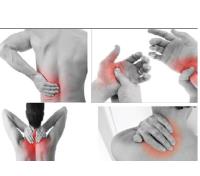 Add My Company
Add My Company
Sign In
Repetitive Strain Injury
15-09-2016

Repetitive strain injury (RSI) is a general term used to describe the pain felt in muscles, nerves and tendons caused by repetitive movement and overuse. It's also known as work-related upper limb disorder, or non-specific upper limb pain.
The condition mostly affects parts of the upper body, such as the:
forearms and elbows
• wrists and hands
• neck and shoulders
but can also affect the lower back due to poor posture or as a result of sitting hunched-over for long periods of time.
Symptoms of RSI
The symptoms of RSI can range from mild to severe and usually develop gradually. They often include:
pain, aching or tenderness
• stiffness
• throbbing
• tingling or numbness
• weakness
• cramp
At first, you might only notice symptoms when you're carrying out a particular repetitive action. But without treatment, the symptoms of RSI may eventually become constant and cause longer periods of pain. You may also get swelling in the affected area, which can last for several months.
What causes RSI?
RSI is related to the overuse of muscles and tendons in the upper body.
Certain things are thought to increase the risk of RSI, including:
• repetitive activities
• doing a high-intensity activity for a long time without rest
• poor posture or activities that require you to work in an awkward position
Cold temperatures and vibrating equipment are also thought to increase the risk of getting RSI and can make the symptoms worse. Stress can also be a contributing factor.
A variety of jobs can lead to RSI, such as working at an assembly line, at a supermarket checkout or typing at a computer.
It's important to work in a comfortable environment which has been appropriately adjusted. Employers have a legal duty to try to prevent work-related RSI and ensure anyone who already has the condition doesn't get any worse.
For more information on Repetitive Strain Injury talk to Safety Services Direct Ltd
Enquire Now
List your company on FindTheNeedle.

